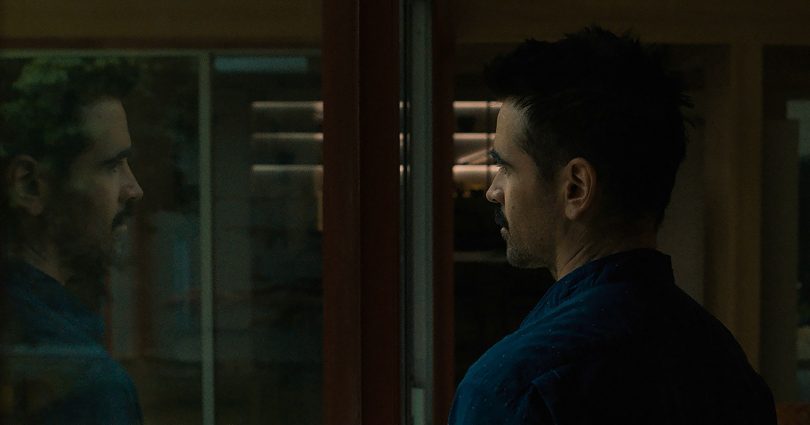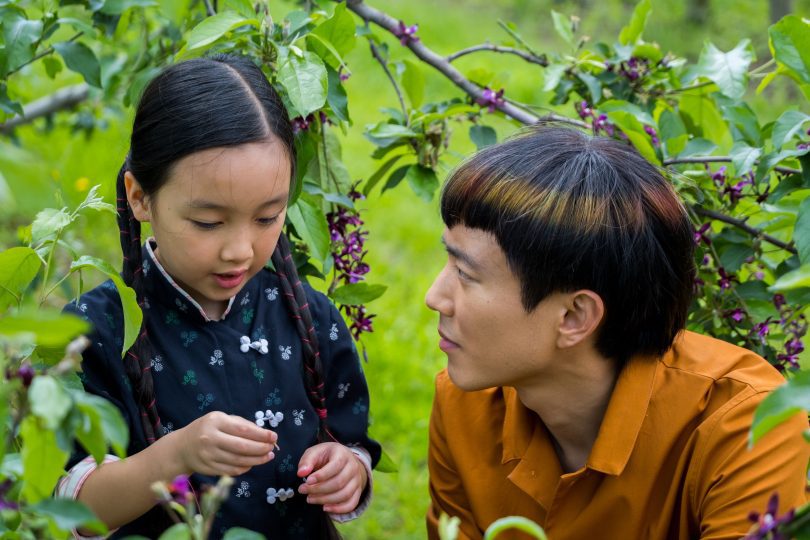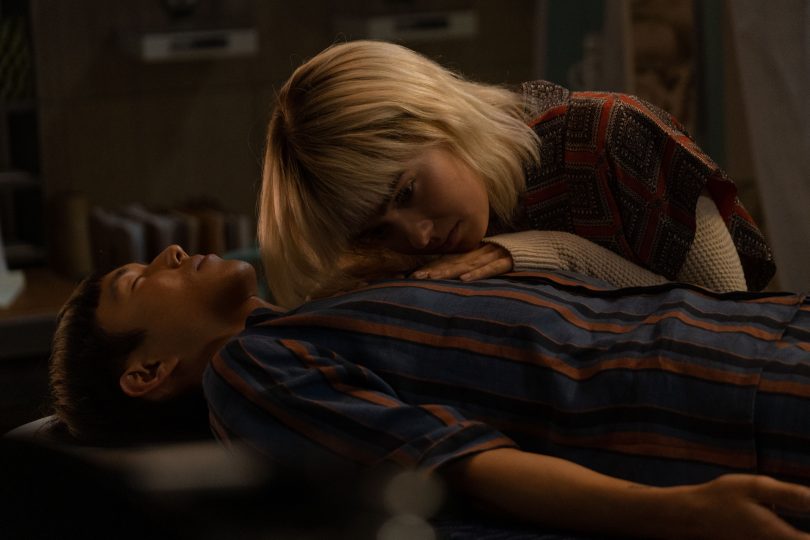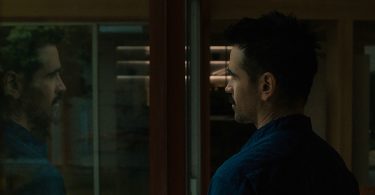Filmmaker Kogonada explores what it means to be human in the emotional and subtle sci-fi drama After Yang. Rather than focus on machines becoming sentient, however, Kogonada focuses on the human reaction and the very real impact an artificial being can have on a family. It’s a quiet, introspective film that pairs stunning visuals with existential dialogue against a science fiction backdrop. More aligned with Terrence Malick than Alex Garland, After Yang can be a bit heavy with its themes, but the journey it takes you on is well worth taking.
In the future, people are able to purchase robotic androids to help around the house, take care of family members, or any variety of other tasks to make household life easier. Jake (Colin Farrell) and wife Kyra (Jodie Turner-Smith) purchased a certified refurbished unit named Yang (Justin H. Min) to help raise their daughter and teach her about her Chinese heritage. One day Yang malfunctions and becomes unresponsive, and when Jake finds out that it’s an issue with his core, he becomes determined to fix him even if it means going through unofficial channels. In doing so, Jake learns that Yang has a few secrets of his own locked away in his memories, making him question his own humanity in the processes.
At its core, After Yang is about the connections we have. When Yang first breaks down, Jake’s initial concern is the how much money it will cost him. Yang was already a tool he purchased secondhand because he was cheaper than buying new. But as the story progresses, he starts to see Yang as much more than just an object, especially once he gets his hands on Yang’s memories and begins to uncover everything Yang experienced. It’s fitting that Kogonada depicts Yang’s memories in a brain-like fashion with interconnected neurons for each memory. It’s a beautiful representation, and blends the whole idea of robots and humans being one in the same.
Jake dives deeper into Yang’s memories, revisiting old and new moments alike. Most importantly he’s experiencing all these moments from Yang’s perspective, although all he can do is see what Yang saw or heard. He doesn’t know what Yang was feeling, but just living though his memories is enough to make him question how much more Yang meant to the family. After Yang is mostly comprised of these small, intimate moments between characters having seemingly normal conversations. One of my favorite scenes in the film is a discussion between Jake and Yang over tea. Jake works in the tea industry and simply explains his love for it and what it means to him. It’s an absolutely beautifully shot and acted scene as Jake prepares cups of tea for both of them to drink, even though Yang cannot truly feel what it’s like to drink something. On the surface it might not seem like much, but when connected with all the other memories and nodes of Yang’s data, it paints a clearer and more complete portrait of him.
After Yang then develops into a story that’s not about trying to repair a robot but save a family member. Not every memory works as well as the tea scene; the film can be as slow as molasses at some points. It’s constantly moving forward, though, pushing to uncover and strengthen the emotional connections between the characters. I do with we could have spent more time with the daughter Mika (Malea Emma Tjandrawidjaja). She’s the one who always saw Yang as a brother and not just a robot. She’s why Jake and Kyra want to get Yang fixed in the first place. She is the heart and soul of the film.
After Yang is like a strong tea. On first glance it might not look like much with its heavy dialogue and subtle visuals, but if you let it steep in your mind for a while you’ll begin to see and understand more of its complexity. The more I sit with the film, the more I enjoyed it. It also just so happens to feature one of the best opening credits of the year, if not the decade. The movie is worth watching for that single scene alone.
-
After Yang
Summary
Filmmaker Kogonada explores what it means to be human in the emotional and subtle sci-fi drama After Yang. Rather than focus on machines becoming sentient, however, Kogonada focuses on the human reaction and the very real impact an artificial being can have on a family. It’s a quiet, introspective film that pairs stunning visuals with existential dialogue against a science fiction backdrop. More aligned with Terrence Malick than Alex Garland, After Yang can be a bit heavy with its themes, but the journey it takes you on is well worth taking.













